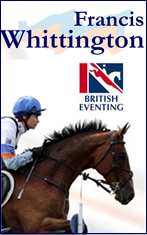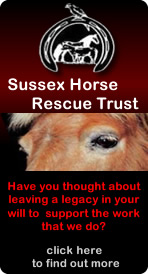
Horseytalk.net Special Interview
City Streets & Derby Winners
City's streets named after Derby horse racing winners
Every year the Cheltenham Festival in Gloucestershire provides a reminder of Ireland's passion for horse racing.
For owners, trainers, jockeys and punters across the island, the festival of racing over jumps is a highlight of the sporting year.
However, in one extensive corner of Belfast, champions of flat racing classic the Derby have been immortalised forever along one of the city's main arterial routes.
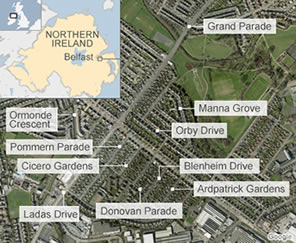 Streets named after Derby winners
Streets named after Derby winners
- Ormonde (Crescent, Gardens) - 1886
- Donovan (Parade) - 1889
- Ladas (Drive and Way) - 1894
- Ard Patrick (Ardpatrick Gardens) -1902
- Cicero (Gardens) - 1905
- Orby (Drive, Park, Gardens, Road and Grove) - 1907
- Pommern (Parade) - 1915
- Grand Parade (Grand Parade) - 1919
- Manna (Grove) - 1925
- Trigo (Parade) - 1929
- Blenheim (Drive) - 1930
- Cameronian (Drive) -1931
Local historian Aidan Campbell said the houses date back to the 1930s, but it is not clear why the streets were named after famous horses.
He said one theory was that the builder was a horseracing fan.
"It was a common thing for builders to name streets after family members or their interests," he said.
According to Belfast City Council, the tradition and custom in naming new streets is that the developer requests the name and the council then decides whether to give it the go-ahead.
It is thought that the 1929 winner Trigo, who was first past the post at odds of 33/1, might have provided a windfall for the developer who celebrated by naming the streets after Derby winners.
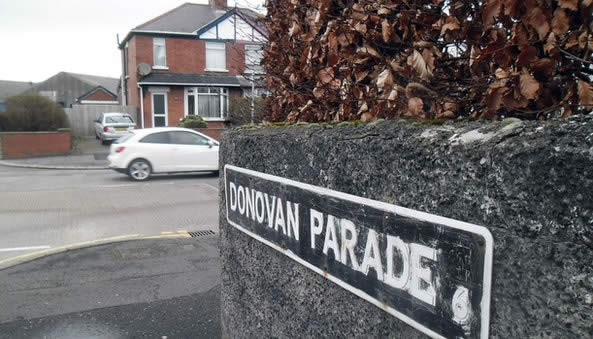
Donovan Parade is named after the 1889 Derby winner
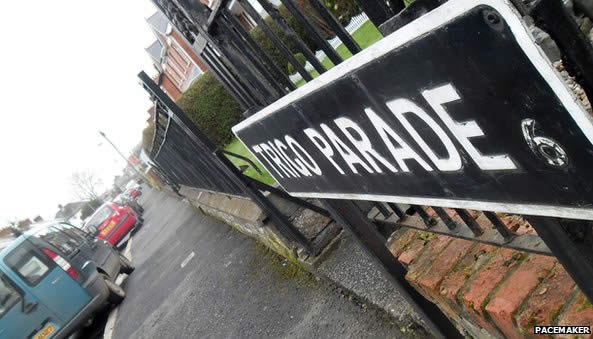
While Trigo is the Spanish word for 'wheat', its owner was a wealthy Belfast man with a keen interest in the crop.
"Trigo was owned by William Barnett, who was a grain miller - he owned a big mill that you can still see from the M2 motorway," said Mr Campbell.
"He owned Malone House in south Belfast and the park around it is still called Barnett's Demesne."
Five streets are named after the 1907 winner Orby, which was the first Irish-trained horse to win the Derby.
"The trainer was Fred MacCabe who was a doctor who fought as a colonel in the South Irish Horse regiment in the Boer War," said racing historian Michael Church.
"It was owned by the notorious Irish-born American politician Richard 'Boss' Croker, who after a life of ruthless corruption settled down to found the Glencairn stud near Dublin from where he bred Orby and Grand Parade, the 33/1 winner of the 1919 'Peace Derby' - that was the first race at Epsom after WWI."
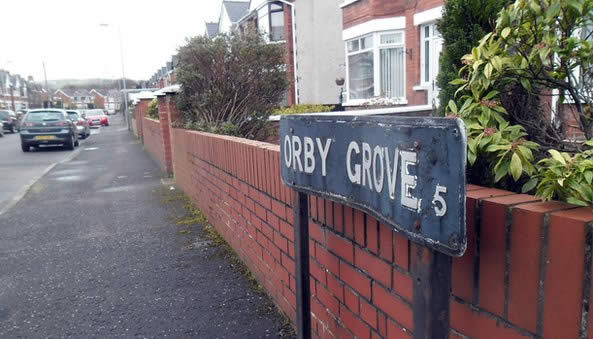
Orby was the first Irish-trained horse to win the Derby
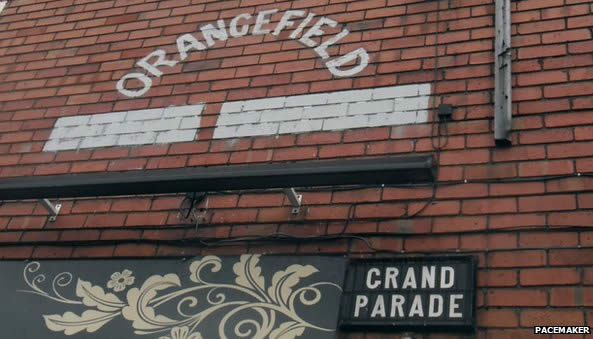
Grand Parade is in the Orangefield area of Belfast
Not only was Orby a descendant of 1886 winner Ormonde, he also sired Grand Parade, and all three horses have streets named after them in east Belfast.
Mr Church said Orby would have been a household name in the 1930s.
"At this time, horseracing was established the number one sport, and most of the working class would have a bet every day, illegally of course," he said.
"You'd hand your bet to someone like the landlord of the local pub or the milkman."
Ladas Drive and Way are both named after the 1894 Derby winner, who was owned by the then prime minister, the Earl of Rosebery.
It came in at odds of 2/9, but its owner came up trumps with a rather unusual accumulator bet, according to Mr Church.
"He'd had a bet that he'd win the Derby, become prime minister and get married in the same year," he said.
"I think he might have got married so he'd win the bet."
There are many varied reasons for how streets were named in east Belfast, according to Mr Campbell.
He said that up until the 1920s, this area would have been mostly countryside.
"In the Cregagh estate, you've got streets named after Ulster rivers like Kilbroney in County Down, Callan in County Armagh and Sheskin in County Donegal," he said.
"On the other side of the Cregagh Road, there are houses built for soldiers returning home after WWI which are named after battles like Somme, Hamel, Thiepval and Picardy."
"Further out, there are houses built for workers at the Shorts factory with streets named after their aircraft like Tudor, Stirling and Sunderland."
"The other thing that happens with street names is they are inspired by what is in the news at the time.
"For example, Cyprus Avenue was made famous by Van Morrison's song - it was built in late Victorian times around the time Cyprus got its independence."
It seems that while there are many reasons why streets get their name, it remains a mystery why the Derby features so strongly in east Belfast.




